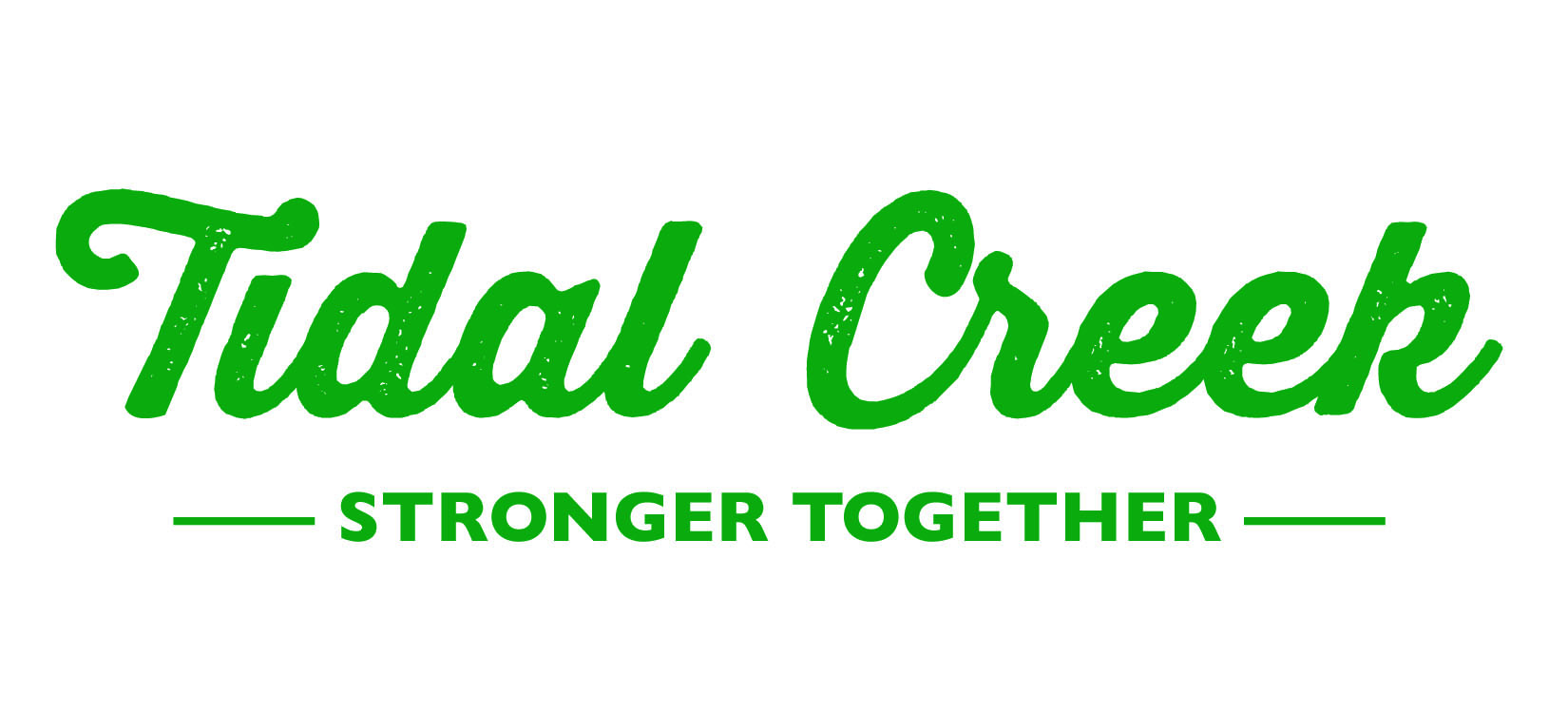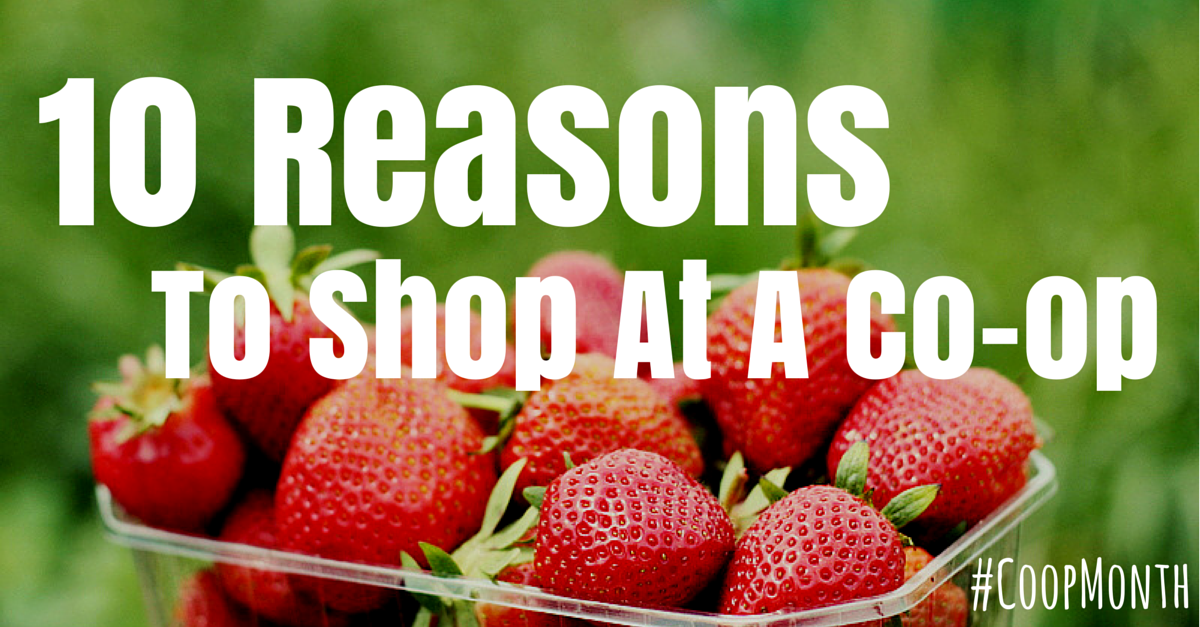There are many reasons why you should be buying your groceries at a Food Co-op. When you shop at a Co-op, you get fresh food that is grown locally, most of which is organic. Indeed, a Food Co-op has a lot to offer; not only do you derive health benefits from consuming food that is fresh, but you are also helping your local farmers economically, while also aiding the community effort to reduce waste by not purchasing food items that have to be freighted across the continent.
But that is merely scratching the surface of what is possible when you choose to shop at your local Co-op! Here are 10 reasons why you need to be spending more time shopping at a Co-op instead of conventional big chain grocery stores and supermarkets.
1. The best caf in town, smoothies too!

Cafs at Co-ops have a reputation for making some of the best tasting sandwiches, soups and salads, baked goods, as well as smoothies and juices! Their catering is unmatched, also. The delicacies at these cafs are all-natural and made fresh daily. Because Co-op kitchens like (the Co-op Caf at Tidal Creek) are used to accommodating a wide range of dietary needs and preferences (gluten-free, vegan, dairy-free, etc.), they are pros when it comes to specialty foods.
As they have access to fresh, local produce, their offerings are simply mouthwateringly delicious, so be sure to stop by your Co-op and give them a try!
2. You are supporting your local economy.
When you buy your groceries at a conventional grocery store like Whole Foods, Trader Joe’s, or Harris Teeter, your money is funneled out of your community and into the hands of stockholders and private owners. A Co-op on the other hand, distributes its profits amongst its members, or re-invests it into their business which creates jobs for people. While purchasing at a local grocery store can have a similar effect, the gap between it and a Co-op is significant. In fact, for every $1,000 that a shopper spends a Co-op, $1,604 in economic activity is generated in the local economy. In contrast, only $1,365 is generated in the local economy when the same amount of money is spent at a conventional grocery store.[1]
A conventional grocer also spends 72% of every dollar that they earn on sourcing more inventory, and only 4% on local products. An average Co-op spends 62% of every dollar on inventory and a whopping 12% on locally sourced products.[1] Locally owned Co-ops also give more money to charities (like these) than chain stores do. Your dollar goes further when it is spent at a local Co-op.
3. You know where your food is coming from.
 The supply chain in a Co-op is very transparent and since most of the food is being sourced locally, you know exactly where you are getting your fruits and vegetables from. Co-ops work with local farmers, like the Jones Family Farm here in Wilmington, to bring you the freshest local products at the best prices. Your farmer can tell you exactly how your food was raised. You can even tour some of the farms where your produce is grown and your cheese is made!
The supply chain in a Co-op is very transparent and since most of the food is being sourced locally, you know exactly where you are getting your fruits and vegetables from. Co-ops work with local farmers, like the Jones Family Farm here in Wilmington, to bring you the freshest local products at the best prices. Your farmer can tell you exactly how your food was raised. You can even tour some of the farms where your produce is grown and your cheese is made!
Co-ops are also very active in sourcing fair trade food products. Fair trade helps to reduce poverty in under-developed and developing economies by setting a minimum price for goods. Fair trade also encourages biodiversity and sustainable farming techniques. So, by buying food at a Co-op, you are doing your part in helping solve problems beyond your community by simply knowing where your food is produced.
4. Co-ops can save you money.
There is little doubt that food prices are increasing exponentially, however Co-ops can offer you lower prices as most of the produce is either local, or purchased at wholesale prices with minimum markups. Besides, as Co-ops do not have to pay CEOs or investors to run their affairs, they can afford to sell their produce at a lower margin than conventional grocers.
You don’t have to be an Owner to shop at your local Co-op, but there are some major benefits to having an Ownership. If you decide to become an Owner of a Co-op, then you can save as much as 50% on food shopping depending on what you purchase as Co-ops will roll out monthly discounts. For instance, at Tidal Creek Co-op and health food store in Wilmington, Owners get 10% off on every purchase once a month, and also 10% off on special order purchases, not to mention the amazing Co-op Deals that are available to all Owners and non-Owners alike. Also, Co-op Ownership costs are minimal. At Tidal Creek Co-op you are only required to purchase an annual $30 equity share to become an Owner. Your Ownership can be shared and used by anyone in your household, even your roommate!
5. You are supporting the environment.
 As a consumer, it can be difficult to understand what kind of an impact your purchase has on the environment. Co-ops are extremely active in recycling waste products such as plastic, food waste, and cardboard. Although there is not much data on how different organizations handle recycling, a recent report by California government revealed that Co-ops in general recycle more than conventional stores. For instance, supermarkets recycle 91% of all cardboard waste; Co-ops, on the other hand, recycle 96%.
As a consumer, it can be difficult to understand what kind of an impact your purchase has on the environment. Co-ops are extremely active in recycling waste products such as plastic, food waste, and cardboard. Although there is not much data on how different organizations handle recycling, a recent report by California government revealed that Co-ops in general recycle more than conventional stores. For instance, supermarkets recycle 91% of all cardboard waste; Co-ops, on the other hand, recycle 96%.
Similarly, supermarkets typically compost 36% food waste and recycle 29% plastic waste, while Co-ops compost 74% food waste and 81% plastic waste.[2] Tidal Creek Co-op in Wilmington, for example, has made an impact on the environment by creating a rain garden, providing car charging stations to shoppers, and providing 1 of only 4 biofuel stations in the entire city. Co-ops are constantly innovating and coming up with sustainable ways to help their shoppers and their community.
6. You have a greater variety of local, fresh fruits and vegetables to choose from.
The sooner you consume vegetables and fruits from the time they are harvested, the more nutrients you get from them. As most of the food that you find at a Co-op is locally produced, you can rest assured that they are fresh and full of vital vitamins and minerals. One of the biggest differences between big chain grocery stores and Co-ops is that food products in grocery stores often sit on shelves for a long time before they are consumed, hence they end up losing many of their nutrients compared to locally sourced produce.
7. Co-ops promote organic food.
 Over a billion pounds of pesticides are released into the environment every year in the US. Food Co-ops are very active in both preventing the use of pesticides and educating people about the effects of pesticides. Co-ops thus offer a rich variety of organic foods and products, which sets them apart from supermarkets and conventional grocery stores. In fact, at a typical Co-op, 82% sales come from organic items, while nationally only 12% of all vegetables and fruits that are sold are organic.[1]
Over a billion pounds of pesticides are released into the environment every year in the US. Food Co-ops are very active in both preventing the use of pesticides and educating people about the effects of pesticides. Co-ops thus offer a rich variety of organic foods and products, which sets them apart from supermarkets and conventional grocery stores. In fact, at a typical Co-op, 82% sales come from organic items, while nationally only 12% of all vegetables and fruits that are sold are organic.[1]
8. Buy only what you need.
ItÕs nearly impossible to step into a supermarket and not spend more than you hoped to. Almost every chain store has some offer or price deal going on, usually to get rid of old items. Co-ops like to stay away from marketing gimmicks designed to pull more money out of you.
9. You are reducing the risk of spreading diseases.
The more the distance between you and where your food is grown, the greater the chance that it has been contaminated. Most food items in the US are packed 4-7 days before you will see them at your local supermarket shelves. Certain items such as produce, meat, dairy, eggs and honey are best consumed locally as doing so brings down the risk of diseases. Your community Co-op is the best place to find most of your local produce in Wilmington. Locally grown food also tastes far better than what is being shipped in from a different region.
10. Co-ops think globally, too.
It may be a little hard to visualize how purchasing fruits and vegetables from a Co-op can carry global implications, but it does. Our present industrial food production system is heavily dependent on oil for transportation and petro-chemical fertilizers that are rapidly depleting topsoils the world over. A typical food item in the US travels 1500 miles to get to its destination. When you purchase local food from a Co-op, you are simultaneously reducing your economyÕs dependency on oil, bringing down the foodÕs carbon footprint, and helping preserve topsoil degradation.
Shopping at a Co-op gives you access to highly nutritious, local produce at competitive prices. Becoming an Owner of the Co-op is even better! Check out some of the benefits of becoming an Owner at Tidal Creek Co-op in Wilmington. Ready to become an Owner today? Click here!
Share on Twitter Share on Facebook

1. “The Economic Impact of Co-ops“. NCGA. 2011.
2. “More Than Food“. Ashland Food Cooperative. October 2012.


I blog quite often and I genuinely appreciate your information.
The article has truly peaked my interest. I will take a note of your blog and keep checking for new
information about once per week. I subscribed
to your RSS feed as well.
I got this site from my friend who shared with me on the topic of
this site and now this time I am visiting this web site and reading very
informative posts at this place.
Hey I know this is off topic but I was wondering if you knew of any widgets I could add to my blog that
automatically tweet my newest twitter updates. I’ve been looking for a plug-in like this for
quite some time and was hoping maybe you would have some experience with something like this.
Please let me know if you run into anything. I
truly enjoy reading your blog and I look forward to your
new updates.
Hello to every , as I am genuinely keen of reading this webpage’s post to be updated daily.
It carries fastidious material.
Hi friends, its wonderful post about educationand fully explained,
keep it up all the time.